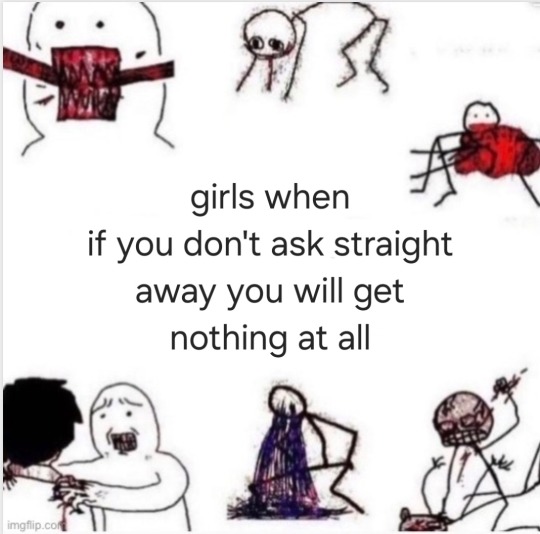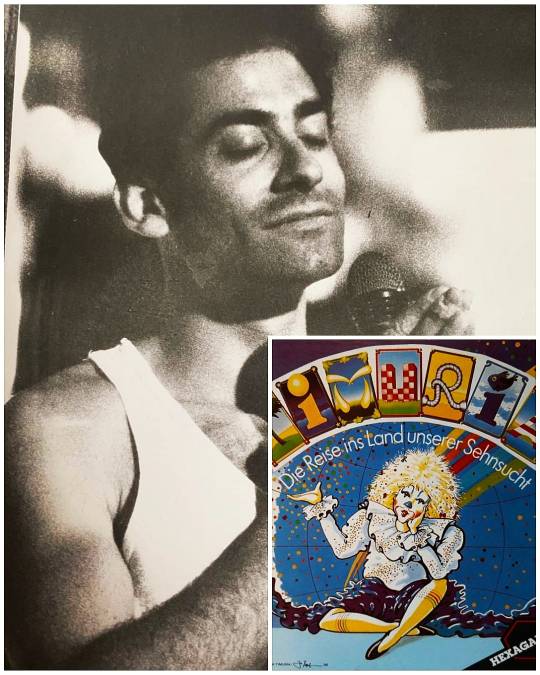#beggar’s opera
Text
Down The (Writing) Research Rabbit Hole, [n] in a series
I can't (meaning "won't") tell you why. But sheesh, what a ride.
Links investigated:
Executed Today
Mack The Knife (Wikipedia)
Die Dreigroschenoper (Wikipedia)
Mack the Knife (Mackie Messer) lyrics in German
The Beggar's Opera
Best unexpected nugget so far: "In 1976, a brand-new interpretation of 'Mack the Knife' by Ralph Manheim and John Willett was used in the New York Shakespeare Festival's production of The Threepenny Opera, starring Raul Julia as Macheath." ...HOLY COW FIRE UP THE TIME MACHINE AND DROP ME OFF AT THE tkts BOOTH, I WANT TIX.
97 notes
·
View notes
Text

Down a vintage Defunctland rabbit hole this fine Saturday and found one relevant to my interests
59 notes
·
View notes
Text

Originally, this was an 18th century print of John Gay, who wrote the immensely popular ballad opera known as The Beggar’s Opera in 1728. That being said, I saw “Mr. Gay” and thought of this scene:


#good omens#gnu terry pratchett#neil gaiman#good omens meme#meme#history meme#created by yours truly#aziraphale#angel#history#18th century#18th century print#1720s#1728#the beggars opera
21 notes
·
View notes
Text
Johann Christoph Pepusch (1667-1752) - Overture to "The Beggar's Opera" for 2 Oboes, Bassoon, Strings and Basso continuo in B-flat Major. Performed by Robert Rawson/The Harmonious Society of Tickle-Fiddle Gentlemen on period instruments.
#johann christoph pepusch#baroque#classical music#orchestra#overture#opera#period performance#period instruments#baroque music#oboe#bassoon#strings#string orchestra#rarely performed composers#the beggars opera#the beggar's opera
26 notes
·
View notes
Text

alert alert ive been reading susan kay again and it's got me mentally volatile !!
#the birthday scene motifs are so important to me#love mommy issues representation in media 😍#dont love the christine aspect of it all but beggars cant be choosers#erik#phantom of the opera#poto#erik the phantom#susan kay phantom#kerik
32 notes
·
View notes
Text
youtube
Britain's Outlaws: Highwaymen, Pirates and Rogues
"3-part BBC documentary series. Few figures in British history have captured the popular imagination as much as the outlaw. From gentleman highwaymen, via swashbuckling pirates to elusive urban thieves and rogues, the brazen escapades and the flamboyance of the outlaw made them the antihero of their time - feared by the rich, admired by the poor and celebrated by writers and artists. In this three-part series, historian Dr Sam Willis ... shows that, far from being 'outsiders', outlaws were very much a product of their time, shaped by powerful national events."
Episode 1 - Knights of the Road: The Highwayman's Story
"In 1714, Captain Alexander Smith's book The Complete History of the Lives and Robberies of the Most Notorious Highwaymen caused a sensation. It set the bar for colourful and slightly dubious accounts of the big names in highway robbery. But whilst the public might find them romantic, the elite weren't so keen. They represented a threat to the social order: not only were they attacking property with impunity without any regard to the rank of their victims, but the robberies were giving them wealth and pretensions of status.
To satirists, there was a delicious irony to the howls of outrage about highwaymen. For them, politicians in the Georgian government were even worse thieves. In 1728, John Gay penned The Beggar's Opera, using a highwayman called Macheath as a central character in his stage satire. Macheath was the theatrical incarnation of the gentleman robber, but he wasn't the villain of the peace. He was moral, he was noble, and it was set against the rapaciousness of the elite. His character was used to dissect the hypocrisy of the ruling classes, who were losing more at the gambling tables than they were on the roads. Then there was the corruption. In John Gay's eyes, highwaymen were more honest thieves than the government. The ruling class were committing robberies of their own, but they were getting away with it. Prime Minister Robert Walpole spirited away thousands of pounds, and when the Chancellor, the Earl of Macclesfield, took a hundred thousand pounds in bribes, all he got was a fine."
#highwayman#theory#exemplars#james hind#john nevison#swiftnick#dick turpin#claude duval#james mclean#william plunkett#rogues in fiction#the beggar's opera#theatre#big thief little thief#outlaw
8 notes
·
View notes
Text

7 notes
·
View notes
Text

2023 (January - early August) my favourite albums
#* other years excluded#means only albums#it’s only la crème deluxe deluxe#except Beggars Opera no idea why I put it there#Ian Gillan Band#Supertramp#Peter Hammill#Deep Purple#Emerson Lake & Palmer#ELP#Black Sabbath#Yes band#Small Faces#the jimi hendrix experience#Uriah Heep#Jethro Tull#Paul McCartney#Syd Barrett#etc etc#prog rock#hard rock#blues rock#jazz fusion#topsters
32 notes
·
View notes
Text

In 1983 Ethan starred in The Begger’s Opera in Vienna.
Followed by the German tour of Timuria, Kinder-Musical as die Freude in 1986
(Picture of Timuria shared by Ethan last year.)
With Ethan's birthday coming up next month we thought it would be nice to look back on all the incredible roles he has performed over the years.
#ethan freeman#poto#phantom of the opera#european musicals#euro musicals#euromusicals#the beggar's opera#timuria#jewish artist#jewish actors#jumblr#jewblr
4 notes
·
View notes
Text
listening to John Gay's The Beggar's Opera and this is so fucking funny. i love the drama.
6 notes
·
View notes
Text




some of my current favorite late 18th century genders
x x x x
#messages from the ouija board#i love the john collet print so much its one of the things im attempting to adapt into a fan#the beggars opera one just gives me terry pratchett monstrous regiment vibes#sadies day job
37 notes
·
View notes
Text
have any of yall ever heard of this band????
i discovered them like friday bc they were on my daylist or something on spotify and this album is okay but this song totally fucks. the dude has an incredible voice
4 notes
·
View notes
Text
youtube
I keep wanting to think of this as a musical/flashback episode of Highlander, in which Fitz is up to his neck in Shenanigans as usual, but people keep bursting into song
#the beggar’s opera#jonathan miller#roger daltrey#highlander: the series#hugh fitzcairn#i’m sure fitz at least tried being an 18th-century highwayman once#if not for the money then for a lark#Youtube
6 notes
·
View notes
Text
help I'm hyperfixating on this old-ass song from People Suck: The Musical Beggar's Opera because it shows up in my fic in a way that has nothing to do with early 18th century satire of British culture.
Also how the fuck does this song about a married rich guy hitting on a hot chick have anything to do with Christmas except that it takes place in winter and there's snow.
#my taste in music is Eclectic and Not Good#folk music (???)#Cold and Raw#beggar's opera#look I know its in an opera but are there any examples of people singing it not-operatic style#other than Diane Taraz?#not throwing shade but opera singing isn't my cup of tea#18th century#18th century music#Spotify
4 notes
·
View notes
Text
What was the first musical...?
...is sort of a redundant question. Theatre has been musical for as long as there has been theatre. The earliest musical that we would recognise as fitting the modern genre? Some say Show Boat; some go further back to the Black Crook - but the earliest play normally posited is John Gay's The Beggar's Opera (1727).
Don't let the title fool you - it's not an opera so much as it is a parody of opera. It's closer to a jukebox musical - all the songs are well known tunes parodied. Some opera, mainly Handel within that, but also a lot of popular song - near the end you get Greensleeves. But this isn't jukebox in the modern sense - the lyrics are changed to apply to the play, and often to take aim at government figures, in this case the corruption of the government of Prime Minister Walpole.
Ballad opera, as the style came to be known, was phenomenally popular and also controversial. Polly, the sequel to the Beggar's Opera, was censored and so never staged, though scripts were pirated and sold. The same is true of many other ballad operas, more highly censored than other stage works because their popularity with the masses was so dangerous. By the end of the 1730s, censorship had all but killed the genre - but not without a prolific decade of government criticism. The use of popular songs was particularly useful, because the use of well known songs could reference certain scandals or politics without ever actually lyrically mentioning them, making them very tricky to clamp down on.
(I specialised in this in university so if anyone wants to read more about this absolutely let me know.)
The Beggar's Opera is now best known in the form of the Threepenny Opera, into which it was adapted by Bertolt Brecht and Kurt Weill - with new music. The most famous song from which is none other than Mack the Knife! So the show still, in its way, resonates in popular culture today.
youtube
#queue stole my heart away#musical theatre history#musical theatre#the beggar's opera#ballad opera#john gay#polly#robert walpole#the threepenny opera#the thrupenny opera#bertolt brecht#kurt weill#mack the knife#bobby darin#Spotify#Youtube
8 notes
·
View notes